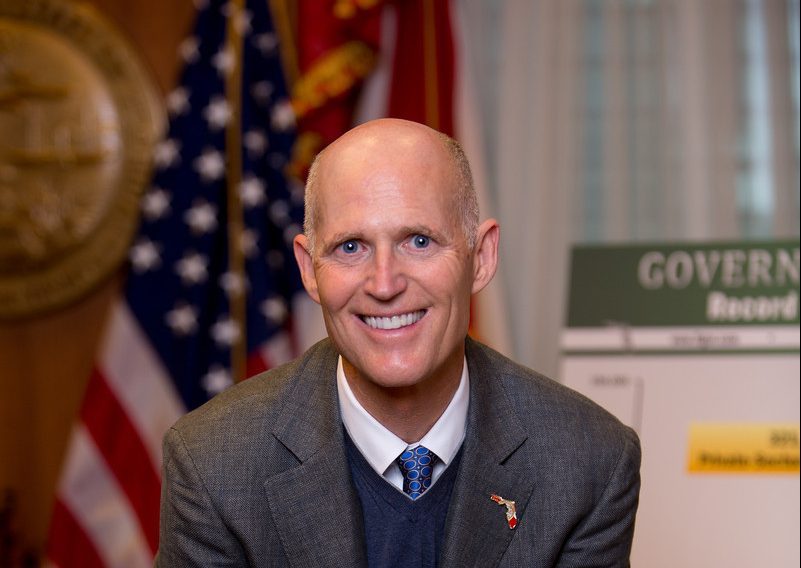
The Florida House of Representatives unanimously voted on a bill to extend workers’ compensation benefits for firefighters, police officers and other first responders suffering from post-traumatic stress disorder.
Gov. Rick Scott approved the legislation, SB 376, on March 27.
“If we expect people to take care of us, then we should be doing the same thing for them,” Scott told reporters prior to signing the bill.
Before the bill was approved, workers’ compensation did not cover any form of PTSD treatment under Florida law. It covered only physical injury sustained on the job.
Once implemented, the law will allow first responders who have witnessed the death of a minor or a death involving bodily harm to the extent that it caused them significant psychological distress to file workers’ compensation claims.
Dr. Kevin Wandler, chief medical officer at Advanced Recovery Systems, said that Scott is setting a new standard for PTSD support that all states should follow.
“This bill, along with support from the International Association of Fire Fighters, will allow more of our first responders to get treatment for PTSD, which is highly prevalent and can have traumatic consequences,” Wandler told DrugRehab.com.
Under this law, first responders must show clear evidence that their PTSD was caused by a traumatic event on the job. The legislation also requires agencies to provide education on mental health awareness.
The law will go into effect Oct. 1, 2018.
PTSD Treatment Could Prevent Addiction
First responders often brave harrowing situations and unsafe environments that result in mental health problems.
- 85 percent of first responders have experienced symptoms related to mental health problems.
- 84 percent have witnessed a traumatic event on the job.
- 34 percent have received a formal diagnosis of a mental health disorder.
- 10 percent of responders have been diagnosed with PTSD.
- 75 percent of those diagnosed with PTSD have received treatment.
Tragedies like the one that occurred at Marjory Stoneman Douglas High School in Parkland, Florida, can cause severe mental distress in those who respond to the situation. In some instances, it can lead to suicidal ideations or substance use disorders.
For example, a 2002 study published in the American Journal of Psychiatry found that alcohol use disorders were common among first responders of the 1995 Oklahoma City Bombing. The report showed that 24 percent of rescue workers developed an alcohol use disorder soon after the attack and 47 percent developed a drinking problem at some point in their lives.
In a Facebook Live video last month, Jimmy Patronis, Florida’s chief financial officer and state fire marshal, said these tragedies are traumatic for first responders. But rescue workers don’t always talk about their emotional anguish.
“This profession is a very proud profession. It’s pretty intimate,” said Patronis. “You don’t see first responders going onto social media and explaining the challenging day they had. They don’t go onto social media or share the horrific experience they had.”
Patronis went on to explain that some first responders may turn to alcohol or other drugs to self-medicate symptoms of PTSD or other mental health disorders. This can result in dependence or addiction. Treating PTSD in first responders could potentially prevent substance use disorders.
Treatment Options for First Responders
Many first responders can receive psychological assistance through employee assistance programs. Fire departments enlist counselors who provide support and resources to firefighters with PTSD and substance use issues. These resources often include a limited number of counseling sessions.
However, counseling might not be enough for a person struggling with severe symptoms of PTSD.
Dr. Abby Morris, medical director of the IAFF Center of Excellence for Behavioral Health Treatment and Recovery, told DrugRehab.com that about 20 percent of firefighters and paramedics will struggle with PTSD during their career.
“Society is now more accepting of the realities of PTSD in the military veteran population, but first responders are exposed to harrowing incidents every single day and need the same type of support and coverage for mental health treatment,” she said.
The new law in Florida might help rescue workers receive this support. And it could encourage more first responders to seek assistance for their psychological problems.
“The passage of this bill and the recognition that, just as physical injuries, these are conditions acquired on the job are a great start to helping first responders in Florida have greater access to the comprehensive treatment they need and deserve,” said Morris.
Medical Disclaimer: DrugRehab.com aims to improve the quality of life for people struggling with a substance use or mental health disorder with fact-based content about the nature of behavioral health conditions, treatment options and their related outcomes. We publish material that is researched, cited, edited and reviewed by licensed medical professionals. The information we provide is not intended to be a substitute for professional medical advice, diagnosis or treatment. It should not be used in place of the advice of your physician or other qualified healthcare provider.